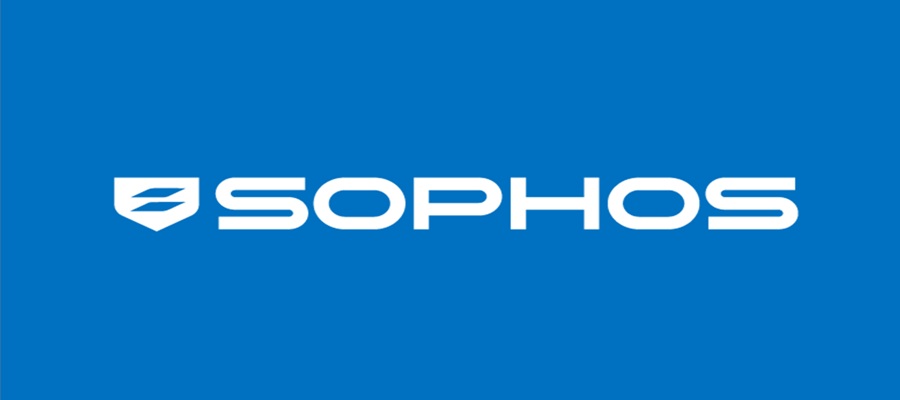Telecom
Mobile Apps is Vehicle for Cognizant Computing by 2017 – report

Mobile apps will be downloaded more than 268 billion times, generating revenue of more than $77 billion and making apps one of the most popular computing tools for users across the globe By 2017, according to Gartner, Inc.
As a result, Gartner predicts that mobile users will provide personalized data streams to more than 100 apps and services every day.
“Mobile apps have become the official channel to drive content and services to consumers. From entertainment content to productivity services, from quantified-self to home automation, there is an app for practically anything a connected consumer may want to achieve,” said Brian Blau, research director at Gartner.
“This connection to consumer services means users are constantly funneling data through mobile apps. As users continue to adopt and interact with apps, it is their data — what they say, what they do, where they go — that is transforming the app interaction paradigm.”
Currently, apps often provide an opportunity for brands to reach and engage with customers in a direct way, and therefore data coming from the user is often treated as a resource.
This is especially true of free apps, which in 2013 account for 92 percent of app downloads. App users are providing troves of data and often accept advertising or data connectivity in exchange for access to the app.
Gartner said that brands and businesses are already using mobile apps as a primary component of their user engagement strategies, and as the use of mobile devices, including wearable devices, expands into other areas of consumer and business activities, mobile apps will become even more significant.
“In the next three to four years, apps will no longer be simply confined to smartphones and tablets, but will impact a wider set of devices, from home appliances to cars and wearable devices,” said Mr. Blau.
“By 2017, Gartner predicts that wearable devices will drive 50 percent of total app interactions.”
Wearable devices will use mobile apps as their conduit for data exchange and user interface, because many of them will have few or no user interface capabilities. Offloading that responsibility to the mobile device means the wearable devices will depend on apps for all types of user input or output, configuration, content creation and consumption, and in some cases, basic connectivity.
“While wearable devices will not fully rely on, or be a slave to, mobile devices, it is a way for manufacturers to keep these devices small and efficient, therefore significantly reducing device costs in favor of using apps, which are more easily maintained and updated,” said Mr. Blau.
“Considering their underlying service, most wearable devices need some type of user interface. Taking the example of a fitness-tracking device, ultimately its onboard data will need to be uploaded into the cloud, processed, and then analyzed in reporting back to the user. Apps are an obvious and convenient platform to enable great products and services to be developed.”
Mobile apps are often a vehicle for cognizant computing, in which the data gathered through the use of the apps and the analytics around it are becoming more important in both volume and value. In fact, it can be so sophisticated that through their solution providers, consumer brands know a lot about any individual consumer, such as the consumer’s demographic data, location, preferences, habits, and even his or her social circle, in some cases.
As a result, Gartner predicts that by 2015, cognizant computing will be a key enabler in smart home solutions.
“Cognizant computing takes intelligent actions on behalf of users based on their historical data, preferences and rules,” said Sandy Shen, research director at Gartner.
“It can predict user needs and complete tasks without users initiating the action or interfering with the service. It can take the very simplistic format of completing a recurring event such as to turn on the water heater at a preset time, or the more sophisticated format of calling the rescue services and connecting with the doctor when an emergency occurs.
Cognizant computing can play a meaningful role at home because home settings are stable with relatively fixed equipment, and the user behavior there is routine and predictable. Tasks tend to be linear, in that each stays in its own boundaries with little interactions among different disciplines. For example, the entertainment services are unlikely to need to interact with the healthcare or home management services. Also, the amount of equipment or service data to call upon is relatively small compared with an outdoor environment, where the surrounding conditions and user intentions are more diverse.
Large service providers such as Google, Amazon, Facebook and Apple are likely to have a head start in this market due to the relationship they already have with consumers, which provides them with a large repository of user data that they can analyze and predict — a key asset in cognizant computing.
In addition, consumers also trust these brands to manage their personal data — another key aspect in cognizant computing, whereas newcomers will have to build these relationships from scratch.
Smart home solutions will likely span across various brands and platforms in order to become “intelligent” and deliver good user experience. Those that are restricted to a single brand are likely to lose the competitive edge.
Telecom
Safer Internet Day: Sophos Warns – 42% Attacks Hit Stolen Logins in 2025

Sophos, a leading provider of innovative cybersecurity solutions, shared practical advice to help internet users safeguard their credentials and maintain continuous protection online.

Sophos
According to the upcoming Sophos Active Adversary Report, compromised credentials were the leading cause of attacks (42.06%) in 2025.
This is a strong trend that continues to dominate the scene, with cyber attackers demonstrating ever-increasing ingenuity and relying on new tools to compromise the security and privacy of internet users.
John Shier, Field CISO Threat Intelligence at Sophos, said: “The way attackers are using automation and generative AI to massively increase the speed and volume of their attacks suggests that attacks will become faster and more sophisticated. The best approach to protecting our identities and digital data is to take a proactive stance on defense.”
“Criminals are increasingly targeting people rather than devices, and this trend is expected to continue and even accelerate. Once again, AI is being used as a weapon to create highly detailed phishing lures to entice people to disclose passwords or financial information through well-designed emails, text messages, and WhatsApp messages.”
1. Keep your devices up to date: the most important and simplest measure you can take to protect yourself in the long term.
Cybercriminals are constantly on the lookout for computers that don’t have all the latest security patches, making them easy targets for compromise. This includes computers, laptops, smartphones, tablets, and home Internet/Wi-Fi routers. In most cases, you just need to click “Check for Updates” or “Update Now” and allow the device to restart.
2. Use a password management tool, whether it is built into an operating system or a third-party tool.
Password uniqueness and complexity are then managed automatically, greatly facilitating account isolation and protection.
3. Enhance protection with phishing resistant (MFA).
Many websites offer the option of using an “authentication app,” a smartphone app that displays a unique code for a short period of time, which must be entered after the password, making it much more secure than simply using a password.
Better still, there is a new solution called “passkeys,” which generally uses biometric authentication on your smartphone (face scan, fingerprint) to log in without any password. This is the best choice when available.
John Shier concludes: “Criminals will never stop trying to steal from us, so we must remain vigilant. We know that they are constantly improving and becoming more skilled at deceiving us, so it’s up to us to move forward and improve our protections to stay safe.”
For more information, please visit: https://www.sophos.com
Telecom
EU Eyes Interim Ban on Meta’s WhatsApp AI Restrictions

European Union has launched a formal challenge against Meta Platforms over a new policy restricting third-party artificial intelligence tools on WhatsApp.

Meta
Regulators accuse the U.S. tech giant of abusing its dominant position in the messaging market to favor its own AI assistant.
On January 15, Meta implemented changes to the WhatsApp Business API, allowing only its proprietary Meta AI to operate while blocking rival chatbots.
The European Commission quickly responded with a statement of objections and announced plans for interim measures to prevent “serious and irreparable harm” to competitors during the ongoing investigation.
EU antitrust chief Teresa Ribera stressed the need to safeguard competition in the booming AI sector. “We cannot allow dominant tech companies to illegally leverage their dominance for an unfair advantage,” she said.
Interim steps could force Meta to restore access for third-party AI tools on WhatsApp pending the probe’s outcome.
Meta defended the policy, insisting the WhatsApp Business API serves business-to-customer needs, not general AI distribution.
A spokesperson highlighted alternatives like app stores, devices, and websites for other AI options, rejecting claims that the API is essential for chatbots.
This dispute echoes actions elsewhere: Italy restricted Meta similarly last December, while Brazil recently lifted a comparable court order.
As AI integrates deeper into daily apps, the EU’s moves signal heightened scrutiny on tech gatekeepers.
Telecom
Webb Fontaine Unveils AI Customs Revolution at WCO Abu Dhabi Summit

Webb Fontaine has launched Webb Fontaine Zerø, a groundbreaking AI-powered Customs platform, at the 2026 WCO Technology Conference in Abu Dhabi, drawing over 1,500 delegates from 100+ countries.

Webb Fontaine
CEO Alioune Ciss unveiled the LLM-based concept during the keynote, calling it a “complete reset” from legacy systems – embedding AI across operations for real-time regulatory adaptation, risk management, and trade facilitation under the theme “Customs Agility in a Complex World.”
CTO Ara Shamirzayan led panels on AI risk analytics, while GM Anicet Houngbo moderated border digitalization talks showcasing emerging market successes.
The firm’s stand hosted Zerø demos, interactive sessions, and a sponsored gala dinner, reinforcing WCO ties via SAFE Framework and PSCG contributions.
Webb Fontaine eyes global partnerships to deploy agile, future-proof Customs tech amid rising trade demands.

 E-Financial2 days ago
E-Financial2 days agoAlawuba Advocates Security, Bankable Projects, Infrastructure Development to Promote South-East Vision

 Telecom1 day ago
Telecom1 day agoNCC Committed to Regional Digital Integration – Maida

 E-Financial1 day ago
E-Financial1 day agoCBN Expresses Concern Over Foreign Investments in Nigeria Fintechs

 General News1 day ago
General News1 day agoIndigenous Firm Deploys 400,000 Smart Electricity Meters in 2025

 E-Financial1 day ago
E-Financial1 day agoBOI Secures CBN Nod for Sharia Banking, Unlocks Ethical Funding Boom

 Telecom1 day ago
Telecom1 day agoITU Top Director Visits NITDA, Boosts Nigeria’s Digital Literacy Push

 E-Financial1 day ago
E-Financial1 day agoUBA’s Easy and Instant Account Opening Thrills Returnee

 News1 day ago
News1 day agoEFInA Unveils Research Fellowship Programme to Deepen Financial Inclusion Impact



























